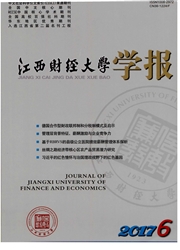

 中文摘要:
中文摘要:
通过“自下而上”的案例探讨方式,分析浪山村地权配置效率的形成以及实践效果,提出“农地价值属性、主体行为能力与产权权能配置三者匹配促进效率生成”理论分析框架。浪山村地权配置制度的实践分析表明,竞价的农地经营权促进了农地要素价值实现及其农业规模化专业化分工效率,均户的价值型农地承包权促进了农地资产价值实现及其农地流转效率,村组织的农地调控权促进了农地公共价值实现与公共产品供给效率。由此得到村落地权分离形成多种基本权能,分别对应配置于合适的产权主体,有利于实现农地的多重价值属性,平衡村落中多个效率目标的结论。浪山村个案总结为中国村落地权制度创新及其村庄发展转型的路径选择提供了经验启迪。
 英文摘要:
英文摘要:
By applying the "bottom-up" approach of case study, this paper analyzes the formation of land fights allocation efficiency in Langshan Village and the practical effect. It puts forward a theoretical analysis framework of " the matching of the three elements-farmland value property, behavioural capacity of the subjects and configuration of property rights and powers can promote the generation of efficiency". The practical analysis of the village's land rights configuration system shows that the bidding for farmland operation right can promote the realization of the value of farmland elements and the efficiency of division of labor in the large-scale and specialized agriculture, that the farmland contract rights of value type for all households can promote the realization of the asset value of farmland and farmland transfer efficiency, and that the farmland regulation rights of village organizations can promote the realization of the farmland public value and the public goods supply efficiency. Hence a conclusion can be drawn that the seperation of village land rights has formed a variety of basic powers and functions, corresponding to the appropriate property right subjects, which is conducive to the realization of the multi-value attributes of farmland and the balance of the multiple efficiency goals of the village. The summary of the case can provide experience and enlightenment for Chinese villages to choose the path for innovation of land right system and transformation of village development.
 同期刊论文项目
同期刊论文项目
 同项目期刊论文
同项目期刊论文
 期刊信息
期刊信息
